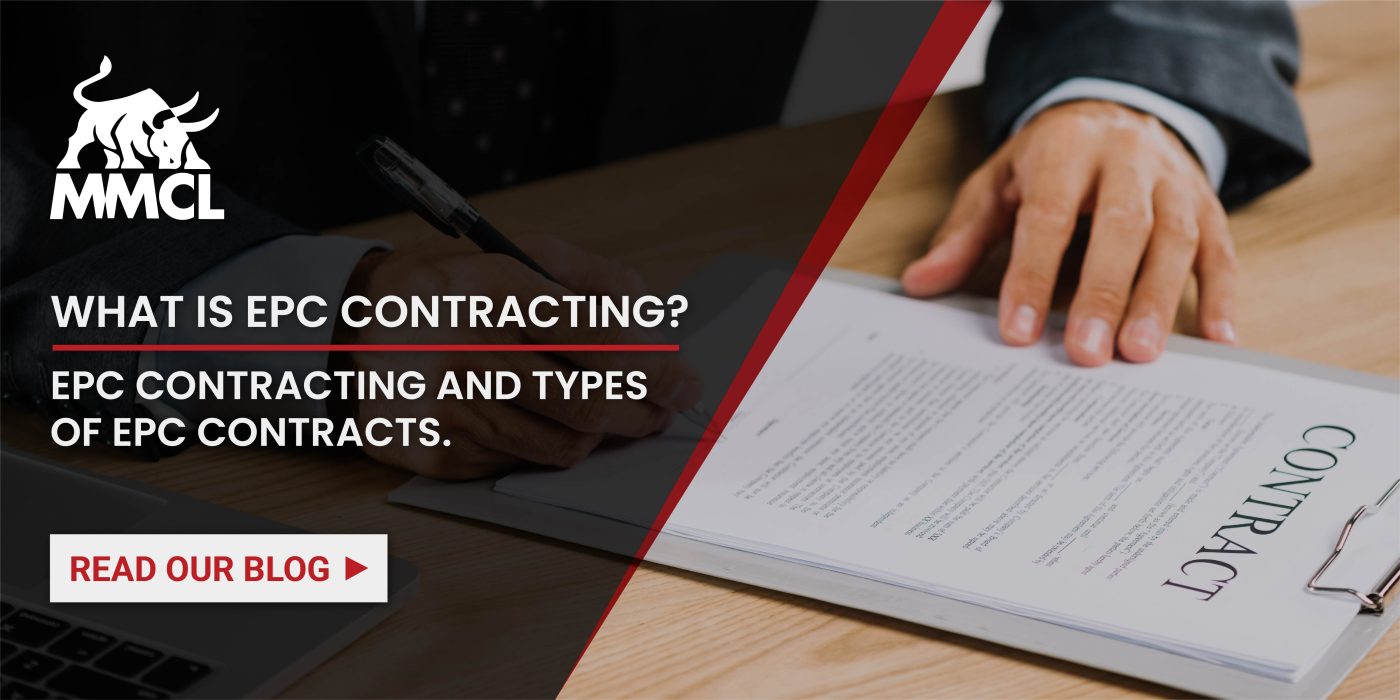EPC (Engineering, Procurement, and Construction) contracting is essential in the execution of construction and engineering projects. This widely regarded approach is employed to carry out large-scale projects efficiently and effectively. Developing a solid comprehension of EPC contracting and its variations will help you gain important insights into the primary interests and project execution process.
A project’s lifetime has three core phases, which are represented by the acronym ‘EPC’. The engineering phase involves designing, planning, and conducting feasibility studies for the project. Sourcing and acquiring every piece of machinery, equipment, material, and labor required to carry out the project is the procurement phase. The final stage of the project is the construction phase, which includes the actual on-site construction, installation, and commissioning.
EPC contracting enables an all-in-one solution, implying that a single entity handles the project’s complete execution, and this is one of its primary benefits. The EPC contractor, as a singular entity, takes on the function of a project manager, supervising every aspect of the project from inception to completion. This streamlines communication, eliminates the likelihood of conflicts, and guarantees prompt completion.
Types of EPC Contracts
EPC contracts are commonly referred to as turnkey construction contracts since a contractor is required to provide a fully functional facility to a developer who just has to switch the key around to start operating the facility. Now, let’s review the various types of EPC contracts that are commonly utilized in the manufacturing sector.
1. Lump Sum Contract (Fixed Price Contract)
One of the most common forms of EPC contracts is the lump sum contract. Under the terms of this agreement, the EPC contractor declares to accomplish the project at a predetermined, fixed cost. The contractor bears the risk of cost overruns and delays, which provides a further stimulus for effective management and execution.
2. Cost-Plus Contract
In contrast to a lump sum agreement, a cost-plus contract does not establish the project’s ultimate cost. Rather, the EPC contractor receives reimbursement for any tangible project expenditures, such as labor, supplies, machinery, and overhead. The contractor obtains payment in advance, usually in the form of a portion of the overall expenses. Cost-plus agreements generally provide greater flexibility to handle unanticipated circumstances and modifications to the project’s scope.
3. Guaranteed Maximum Price (GMP) Contract
In a GMP contract, sometimes referred to as a Target Cost Contract, the EPC contractor estimates the maximum cost for executing the project. The contractor bears the responsibility of completing the project within this specified budget; any savings should typically be split among the participants in the contract. However, if the expenses surpass the agreed-upon limit, the EPC contractor covers the additional burden.
4. Unit Price Contract
Unit price contracts are frequently implemented in projects when the amount of supplies is variable and uncertain. For particular deliverables or task quantities, the EPC contractor receives reimbursement according to set unit rates under this contract. The final payment is determined by multiplying the agreed-upon unit price by the actual quantities accomplished.
5. Design-Build (D/B) Contract
While not precisely classified as an EPC contract, D/B contracts are still relevant and important to discuss. The EPC contractor is in charge of the project’s design and construction phases under a D/B contract. To give an all-encompassing solution, the contractor combines expertise in engineering and construction. This type of contract helps to expedite the project duration and eliminates any obstacles in coordination between design and construction.
Why Is EPC Contracting Considered a Fundamental Need?
EPC contracts have to be signed for several reasons.
-
- Streamlined Project Management: EPC contracting empowers just one entity to manage every aspect of the project. By streamlining the decision-making and communication processes, this lowers the possibility of ambiguities and delays. Project oversight is also more effective when there is only a single point of contact.
- Risk Allocation: By allocating liabilities to the EPC contractor, project owners may mitigate their exposure to uncertainty. The contractor is in charge of scheduling the project, adhering to budgetary constraints, and achieving performance commitments. This lessens the risk of unforeseen delays, cost overruns, and even legal liabilities for the project owner.
- Expertise and Experience: The selection of EPC contractors is typically predicated on their proficiency and track record in carrying out comparable projects. Their engineering, procurement, and construction expertise and abilities are essential to the successful completion of the project. To meet project goals, they can provide innovative concepts, best practices from the industry, and technological proficiency.
- Cost Savings: Project owners regularly benefit from cost predictability under EPC contracts. For instance, lump sum contracts set the project price beforehand and shield the owner from unanticipated costs. Due to their procurement skills, EPC contractors can lower project costs by sourcing goods and services at competitive pricing.
- Time Efficiency: By simplifying the whole process from design to construction, EPC contracts aid in accelerating project completion. Integration of engineering, procurement, and construction shortens project timelines and promotes effective collaboration. Moreover, by not having to independently manage several vendors and contractors, the project owner can conserve valuable time and energy.
- Accountability and Perforarmance Guantees: EPC contracts often incorporate guarantees for performance and contractual obligations that apply to the EPC contractor. This ensures that the project concludes in line with the established quality standards, on schedule, and within budget. It permits legal recourse if the contractor fails to comply with these requirements.
- Effective Project Execution: EPC contractors have a track record of completing projects. They possess the tools, expertise, and connections with suppliers and subcontractors needed to effectively execute projects. Their extensive experience in managing complex technical and construction processes allows them to effectively overcome setbacks.
All things considered, EPC contracting must be undertaken to maximize project management, lower risk exposure, guarantee cost certainty, and accelerate project completion. Through effective and efficient project delivery, it allows project owners to make use of the skills and competencies of EPC contractors.
Final Remarks:
To sum up, EPC contracting is an effective strategy for successfully carrying out complex engineering and construction projects. Comprehending the various EPC contract types—such as lump payment, cost plus, GMP, unit price, and design-build contracts—can yield important insights into the project execution techniques employed in the sector. Every contract type has benefits and drawbacks of its own, therefore it’s important to carefully weigh the requirements and distinctive features of the project while determining the best option.

